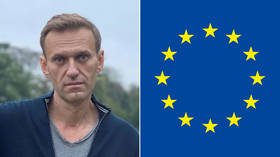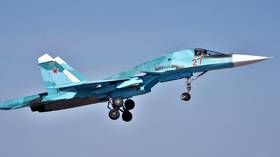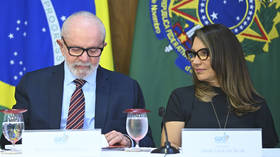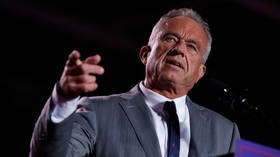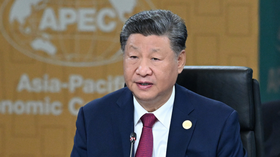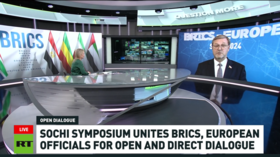By imposing 'illegitimate' sanctions on Russians, EU officials have shown a ‘desire to put themselves above the law’ - FM Lavrov
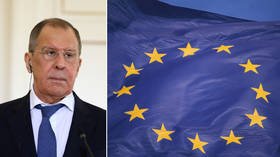
In a sign that relations between Moscow and the European Union are deteriorating, Russia's top diplomat has said that the EU is unable to “adequately assess” what is going on in the world, and wishes to be above the law.
Foreign Minister Sergey Lavrov's comments, delivered to Croatian newspaper Večernji list on Tuesday, were in reaction to the EU's October 15 move to impose sanctions against six Russian individuals, and one scientific institution, over the alleged poisoning of opposition figure Alexey Navalny. Brussels believes the attack was ordered from the top, an accusation strongly denied by the Kremlin.
“Representatives of Germany and France have initiated another series of illegitimate EU sanctions against Russian citizens,” Lavrov told the Zagreb daily. “All this sadly and clearly illustrates the inability of the European Union to adequately assess world events and their (officials) desire to put themselves above the law.”
Also on rt.com Putin says he personally asked Russian prosecutors to allow opposition figure Navalny to travel to Germany for medical treatmentPrimarily, Lavrov pointed the finger at Berlin, which he called “arrogant” for its refusal to respond to Moscow’s requests for information about the Navalny incident. In particular, the Kremlin has asked the German Prosecutor General’s office multiple times for toxicology reports.
According to the Foreign Minister, the EU has not provided any evidence after accusing Russia of poisoning the Moscow protest leader, merely asserting that their view of events is “highly likely.” Lavrov called the allegations “fictitious” and “contrary to elementary logic.”
He also assured “western colleagues” that the “Russophobic outbursts” would be met with an appropriate reaction.
“Unfortunately, we must acknowledge that Washington and many EU capitals have recently redoubled their efforts to curb Russian development, seeking to punish us for an independent foreign policy and consistent protection of national interests,” Lavrov explained.
On August 20, Navalny fell ill on a flight from Tomsk to Moscow. After an emergency landing in Omsk, Navalny was taken to a local hospital, where he fell into a coma. Two days later, the opposition figure was flown to the Charité clinic in Berlin at the request of his family and associates. After testing, German toxicologists discovered that the anti-corruption activist was poisoned with a substance from the Novichok group of nerve agents. This claim has been denied by Russian doctors, who say that they did not find any trace of poison in his body. In October, sanctions were approved by Brussels against six senior Russian officials and one research institute, who are believed by the EU to be responsible for or knew about the alleged attack.
If you like this story, share it with a friend!
